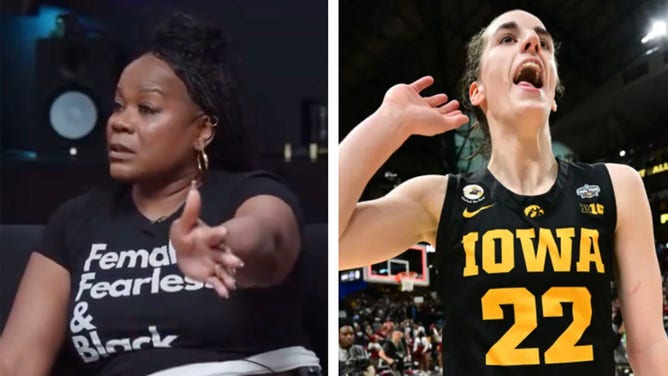Los Angeles Times Supports Sheryl Swoopes Claim 'Black People Can’t Be Racist'
"Sheryl Swoopes is right: Black people can’t be racist," read a headline in the Los Angeles Times this week.
The author, a black man named Clyde Ford, references Sheryl Swoopes' defense against accusations that racial animus stirred her inaccuracy-laden belittlement of Caitlin Clark's collegiate career earlier this year.
"For people to come at me and say that I made those comments [about Clark] because I’m a racist … First of all, black people can’t be racist; but that’s the farthest thing from my mind," said Swoopes.
The LA Times supported Swoopes' assertion by citing its interpretation of the Kerner Commission's definition of racism.
Background: President Lyndon B. Johnson established the Kerner Commission, also known as the National Advisory Commission on Civil Disorders, in 1967 to investigate the cause of over 150 riots throughout the country that year.
Citing the commission, the article concludes racism can only occur when one has "the power to affect someone’s life physically, economically, educationally, politically or otherwise" based on racial prejudice.
OutKick readers are aware of that argument.
We explained the day after Swoopes' tirade that her opinion stating "black people can't be racist" is derived from the idea that black people do not have agency in society, a leading component in Critical Race Theory teachings.
The entire argument centers around the hypothesis that black people are inferior.
The very people who still believe black people do not have power also believe black people can’t fly a plane without commitments of DEI or obtain an ID to vote in the election.
It's a lie. All of it.

Now, perhaps black people in America did lack influence in 1967, during the inception of the Kerner Commission. But that statement is certainly not true today.
Black people can affect a white person's life, particularly by way of public perception, which often dictates the success rate one can achieve politically, economically, socially, and otherwise.
However, let's just stick to basketball, the topic Swoopes references.
Basketball is a majority-black sport. The most influential voices in basketball, for males and females, are current and former black players.
Those voices shape the narratives that white players face in the locker room and via the public.
Heck, Kendrick Perkins cost Nikola Jokic the NBA MVP award last season because he surmised without just evidence that reporters favor Jokic because he's white. In reality, Perkins didn't want a white player to win the award. He got his wish.
That sounds pretty powerful and thereby racist, no?
Still, let us acknowledge how shameful it is that this entire conversation stems from Caitlin Clark setting records in women's basketball as a white girl.
Clark has been a focus of racial wars for months, starting with Swoopes' comments and most recently a blatantly racist USA Today article saying black women built the sport and thus it's theirs to star in.
All Clark did to deserve such scrutiny was outperform her black competition.
Damn her.
Conclusively, black people can be racist. And anyone loathing Clark's success on the basis of her race is more than likely a racist themselves.